Viral Bioinformatics and Genomics (Kampala, Uganda)
23–28 June 2019
Makerere University, Kampala, Uganda
Hands-on training in viral genome sequence analysis and interpretation of genomics data from large-scale sequencing
Summary
In collaboration with Makerere University,Uganda and the MRC-University of Glasgow Centre for Virus Research, we are pleased to announce the 2019 overseas course in Viral Bioinformatics and Genomics.
Viral diseases are a major public health burden across the world. In Africa, HIV, Ebola, Rabies, Zika and Rift Valley Fever are just some of the viral diseases that cause numerous deaths every year. Apart from health risks, emerging viral infections and outbreaks also pose an economic burden. Recent emergence of African Swine Fever Virus (ASFV) infection in Europe and Asia has huge economical implication on the world pig industry. However, ASFV is one of the animal viruses Africa has been battling for decades.
Advances in research technologies are enabling access to improved detection, surveillance and management of viral diseases. In recent years, next generation sequencing (NGS) technologies have played an important role in the identification and classification of viruses, in the detection of drug resistance mutations and in the treatment and surveillance of viral diseases. Early identification of a virus and rapid analysis of its genome will aid towards better treatment and help in controlling the disease spread. Along with the rapid advances in the sequencing technologies, it is necessary to develop data management methods, computational analysis tools and human expertise to cope with the sequence deluge. The number of researchers able to interpret viral high throughput sequence data is currently limited, particularly in African countries.
The Viral Genomics and Bioinformatics course will provide participants with a working knowledge of viral genome sequence analysis and interpretation of genomics data generated from high-throughput sequencing. Topics will include the use of the command line to perform analysis of viral NGS data, quality control of sequences, reference and de-novo assemblies, pathogen detection from metagenomics data, annotation transfer from a reference genome and building phylogenetic trees. Participants, along with gaining bioinformatics knowledge, will have an opportunity to establish links and networks and develop future collaborative projects.
Target audience
The course is free to attend and open to applicants based in Africa engaged in relevant research/clinical activities The programme is aimed at researchers at various levels including Senior Research Assistants, PhD students, Postdoctoral Researchers, Laboratory Scientists and Clinical Scientists/Healthcare Professionals.
Programme
The hands-on programme will cover several aspects of analysis of next generation sequencing data from viral genomes, including lectures, practical computational sessions, case studies and seminars:
Topics
● Introduction to Linux/Unix
● NGS file formats
● NGS data quality check and cleaning
● Reference assembly
● Assembly statistics and visualisation
● Consensus and variant calling
● Pathogen sequence detection using sequence classifiers
● De novo assembly
● BLAST assignment of metagenomics contigs
● De novo contig consolidation and gap filling
● Annotation / sequence submission
● Multiple sequence alignment
● Introduction to phylogenetics methods
● BASH scripting
Case studies
● ASFV (Genome assembly and annotation)
● Zika (Metagenomics)
● Ebola (Reference assembly)
● HIV (Phylogenetics)
Seminars
● Global health and viral diseases
● Overview of current sequencing technologies and applications
● Deciphering the Transmission dynamics of African swine fever using Next generation sequencing approaches
● The challenge of sequencing DNA viruses from vertebrates: The host genome depletion approach used in African swine fever whole genome sequencing
● Evolution of pathogens
● Resistance associated mutations
Learning Outcomes
After completing this course, participants should be able to:
● Apply Unix/Linux command-line and write basic shell scripts for automating bioinformatics tasks
● Recognize the different file formats related to genome sequencing data
● Select an appropriate strategy for Quality Control of NGS data
● Construct reference assemblies using different software (e.g. BWA, Bowtie, Novoalign, Tanoti).
● Evaluate genome assemblies using statistics and visualisations
● Use multiple de-novo assemblers for viral genome reconstruction (e.g. SPAdes, ABYSS, IDBA-UD)
● Use metagenomics tools as such as Taxonomer and CLARK to detect and identify viral pathogens
● Select appropriate software tools to call variants from a reference assembly.
● Compute multiple sequence alignments
● Construct phylogenetic trees to understand viral evolution and transmission dynamics
● Build their own pipeline for analysis, interpretation and identification of viral pathogens.
● Include several aspects of this training in current research and future applications
Instructors and speakers
Lead instructors/organisers

Sreenu Vattipally
MRC-University of Glasgow Centre for Virus Research, UK
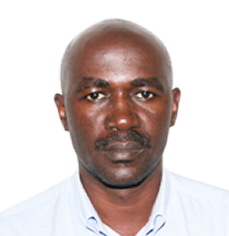
Charles Masembe
Makerere University, Kampala, Uganda
Course instructors
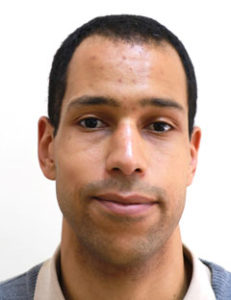
Jean Baka Domelevo Entfellner
International Livestock Research Institute, Kenya

Joseph Hughes
MRC-University of Glasgow Centre for Virus Research, UK
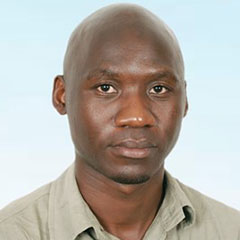
Gerald Mboowa
Makerere University, Kampala, Uganda

Grace Nabakooza
Makerere University, Kampala, Uganda
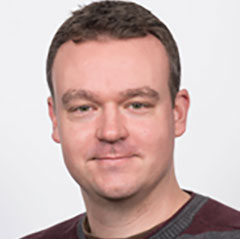
Richard Orton
MRC-University of Glasgow Centre for Virus Research, UK
Srikeerthana Kuchi
MRC-University of Glasgow Centre for Virus Research, UK
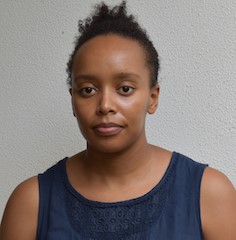
Everlyn Kamau
Virus Epidemiology and Control research group, KEMRI-Wellcome Trust, Kenya.
Guest speaker

Jonathan Kayondo
Uganda Virus Research Institute
How to apply
Prerequisites
The course is open to applicants based in Africa involved in analysis of viral sequencing data. Applicants should have a high level of computer competency and be familiar with the UNIX/Linux operating system and basic command line.
There are numerous online introductory tutorials to the UNIX/Linux operating system and commad line, including:
http://www.ee.surrey.ac.uk/Teaching/Unix
http://swcarpentry.github.io/shell-novice/
How to Apply
Please complete the online application form. Places are limited and will be awarded on merit. If you have any problems with the online application process, please contact us.
Please note: Applications must be supported by a recommendation from a scientific or clinical sponsor (e.g. supervisor, line manager or head of department). A request for a supporting statement will be sent to your nominated sponsor automatically during the application process. Applicants must ensure that their sponsor provides this supporting statement by the application deadline. Applications without a supporting statement cannot be considered.
Cost
Cost
The course is subsidised by Wellcome Genome Campus Advanced Courses and Scientific Conferences and is free to attend for non-commercial applicants. Please contact us for the commercial fee.
Bursaries
A limited number of bursaries are available for each course. These are awarded on merit to cover travel, accommodation and sustenance. The maximum award for travel (economy class) will be £750. If you would like to apply for a bursary, please complete the bursary section of the online application form.
Bursaries can be applied for as part of the course application form. Applicants will be notified of a bursary award along with their place on the course, usually within one month of the application deadline. The decision of the selection committee is final.
Please note that both the applicant and sponsor are required to provide a justification for the bursary as part of the application.
Accommodation services phishing scam – please be vigilant. More information.
Testimonials
Feedback from the 2018 course (Ho Chi Minh City, Vietnam):
“The course facilitators were very kind, helpful, understanding, and enthusiastic all throughout the duration of the course. I would like to thank all of them.”
“This has been a huge highlight of my PhD. The Wellcome Trust and all the instructors and administrators were incredible and really generous with their time and expertise.”
“Thank you very much to the organizers and all the course instructors. I will be applying what was taught right away.”
“I am really grateful for the opportunity given me to be part of this course.”
“I would like to thank the organizer for giving this chance to attend this course. Thanks to all the speakers, the committee and all the participants. I really enjoyed the course.”

